I luoghi inesplorati della Gruppoanalisi
tra grandi gruppi multiculturali, catastrofi e nuove soggettività
view details

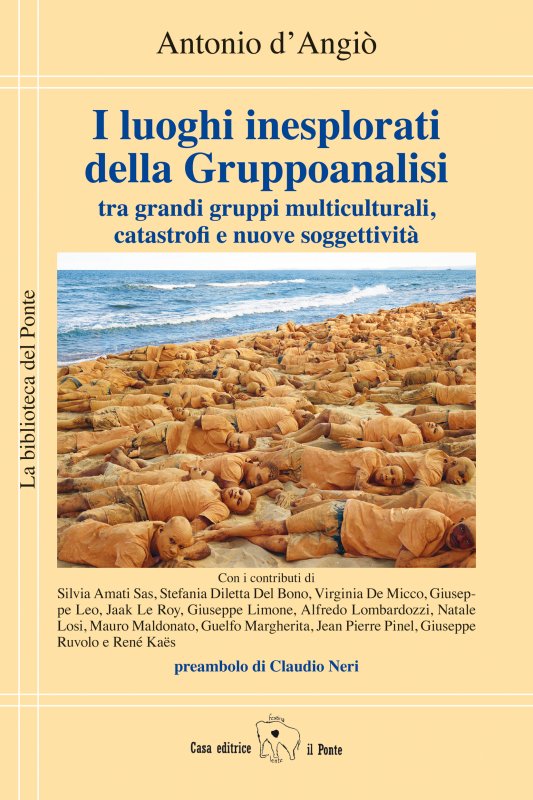
tra grandi gruppi multiculturali, catastrofi e nuove soggettività
view details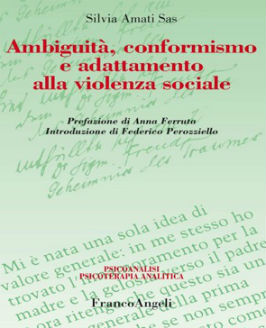
AMBIGUITA' e CONFORMISMO e ADATTAMENTO alla VIOLENZA SOCIALE Silvia Amati Sas ed Franco Angeli 2020
view details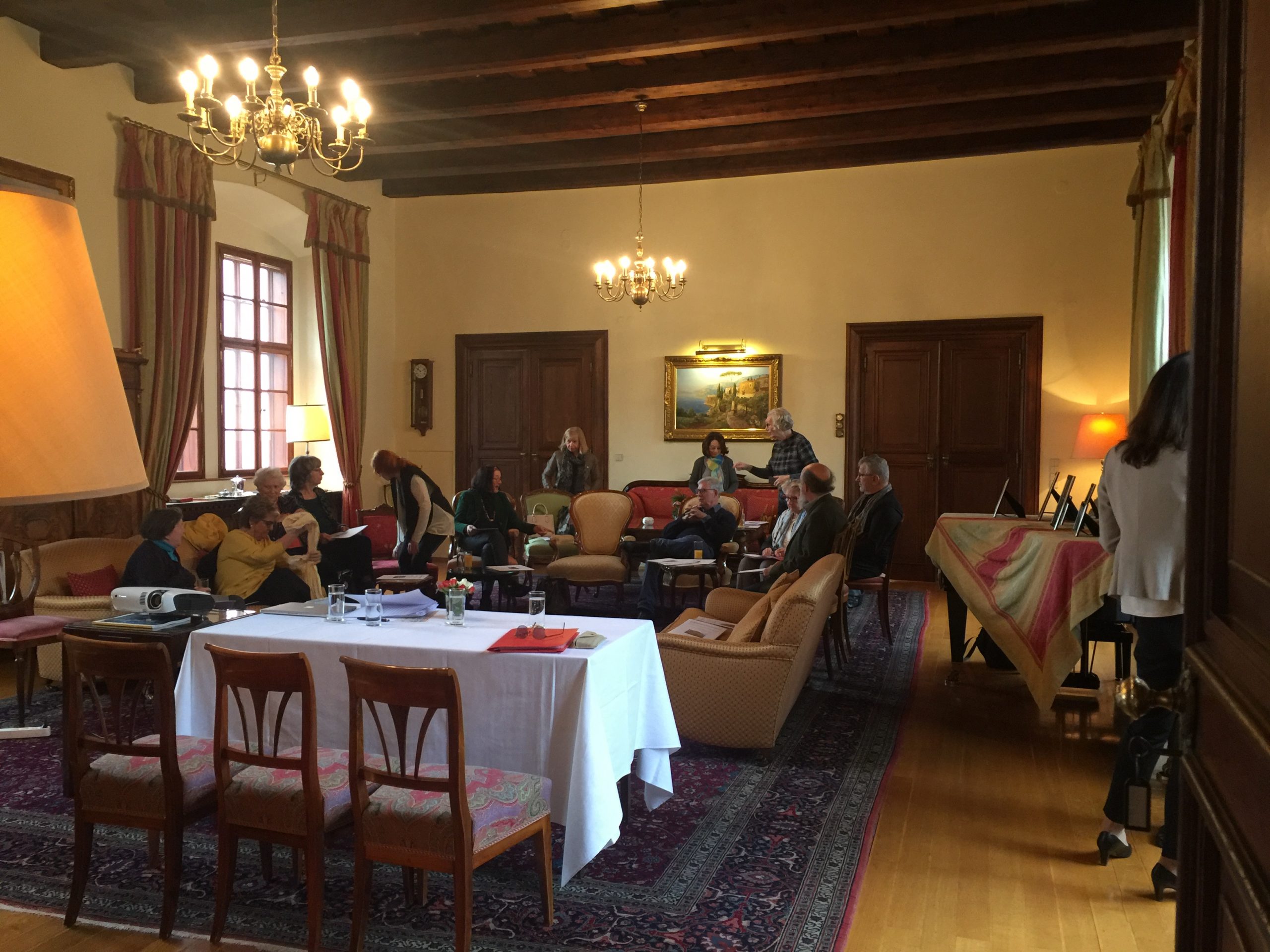
Introduzione Dear colleagues, dear friends, good morning First of all I want to thank his Excellency the Ambassador of Austria in Czech Republic, dott. Alexander Grubmayr, who in spite of the institutional difficulties - often unexpected - wanted to make the prestigious residence of the Austrian Embassy in Prague available to the EATGA. Thank you very much Ambassador. However, we can reassure him that we will take great care of the spaces that he has offered us. Psychoanalysts know how to be very respectful of places and therefore we commit ourselves to leave the residence as beautiful and welcoming as we found it. I believe it is the first time that our Association holds a meeting in Prague. In the last ten years we have been lulled, a bit passively, by the waves of the Mediterranean Sea that remains, as you know, the cradle of European civilization. However today we leave the cradle to walk with our legs on the slippery ground of a contemporaneity that is not always easy to be deciphered, of a continent with evident identity difficulty and perhaps of a European Union that has many cracks in its building, a building that until a few years ago seemed to be instead very solid. So, after so much Mediterranean Sea, our today's appointment deep in the heart of continent represents for me a pause that I hope is very healthy. I still want to thank our dear doctor Fink who has taken the initiative on the organizational level to ensure everyone warm hospitality, and a pleasant stay. I thank her also for her expertise in imagining how to better use the spaces of the residence for our groupanalytic settings. Thanks Bettina. As you know, this Study Day in Prague is my second meeting with you as President. The first took place last year in Ischia ... .but in this respect, let me warmly welcome the person who preceded me in this position, Mrs. Ruth Waldvogel, already President of EATGA , ... I am pleased to see her here in Prague… ____
view details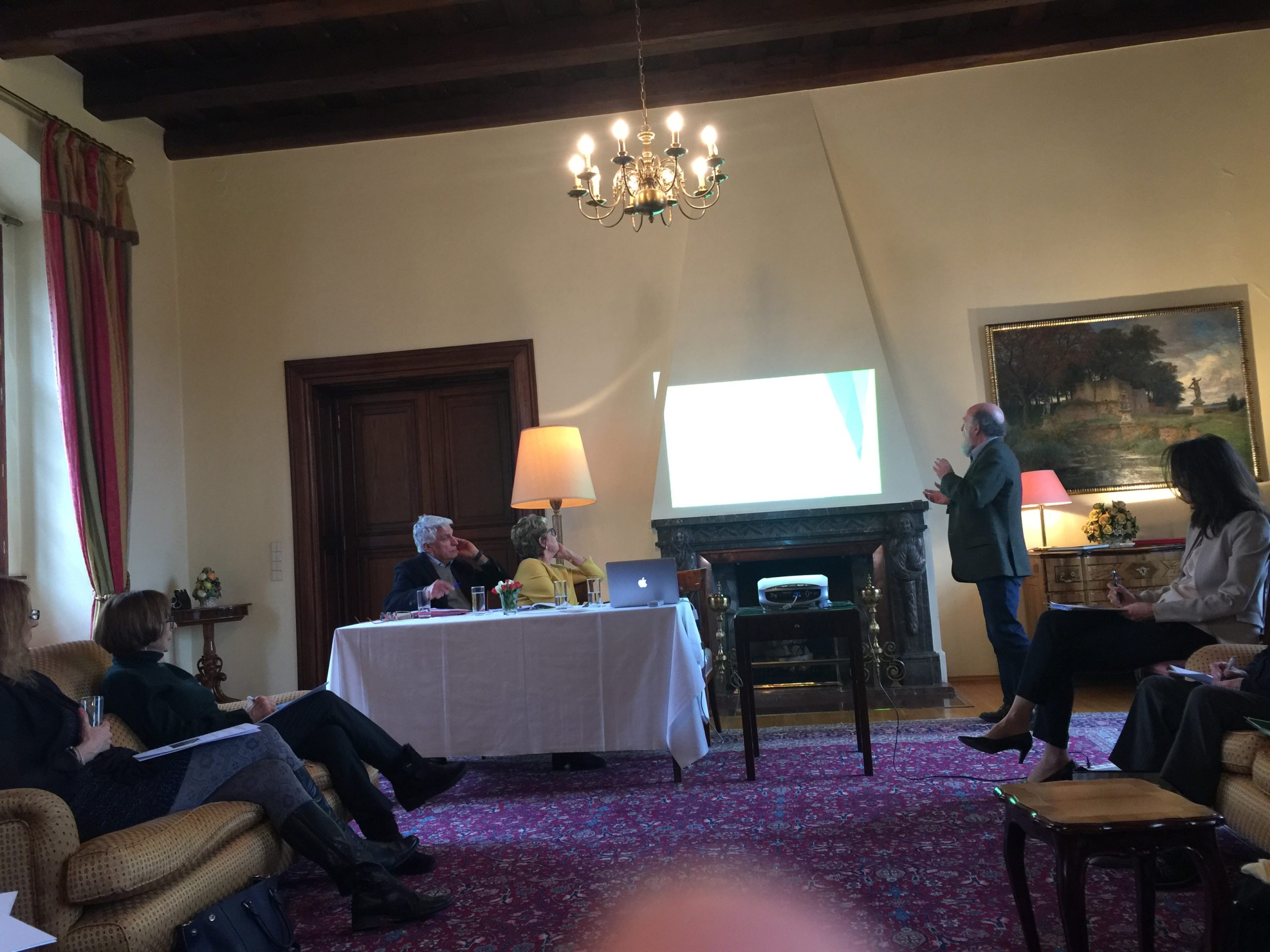
REPORT GIOVANNA CANTARELLA, PRAGA 2019 According to my vision, the present in EATGA-AEATG Development can be identified as starting from our Budapest Workshop in 2006. It was the last EATGA workshop in which the staff made of representatives of EATGA and Hungarian colleagues met several times in order to explore differences and similarities in theoretical and group experiential approaches focusing on the workshop themes.. This event focused on the exploration of psychic, relational, cultural, historical themes relating to Europe: A new enlarged space where people from different countries, nations, histories. started to share a common space . It was a first step followed by many other workshops in the following years where similarities and differences of people started to find a place where they could be explored, talked about, shared, known. From that workshop on, we started to explore our common and diverse feelings towards economic, political, institutional, problems relating to the fading away of previous walls, the falling of Berlin wall (Berlin, 2007). A new inner and outer space where we could start exploring the new visions after the terrible decades or wars in the beginning of the century was coming to foreground also in EATGA-AEATG We had started to bring culture, History,economy, political issuesass themes to be explored in workshops: In Marsala Workshop ( 2008) we explored the issue of immigration and we started to invite to join us outer institutions ( the University of Palermo). Students participating to the ws allowd us to exolore intergenerational themes in our small and large groups. In Palermo ws ( 2011) the consequences of the globalized economy were addressed. As usual exploring them through group dynamics in small and large groups IN Sicily for the first time The workshop research was carried on in a new an innovative setting. In an “open air” setting under the wonderful sky of Sicily, a tribute to a dramatic issue the world has ignored and we have disguised under our beauties ! EATGA AEATG has captured the new era social, political desesperation . The issue of MIGRATION . Of so many people trying to leave their counties looking for survival no longer granted in their homes and countries IN Naples ws (La città psicotica, 2014) disorientation, lost of points of references, and deseperation of people arriving in unknown places , looking for safety inspired a new setting. In EATGA tradition small groups were stables and formed by the same people thought out the workshop ( symbolizing a safe space to come back after worries and problematic search for survival. But in that occasion in order to symbolize the present real situation of people arriving in a town, in a place where they did not know anybody and anything and felt desperate, the participants in the small groups changed from one session to another always meeting new unknown people …… while the only fixed points of references were the conductors waiting themselves for new unknown arrivals in a room. Small group dynamics centered on how people face the problems of finding points of reference in an unknown situation,of finding some signs of welcoming faces…… The workshop interventions, group dynamics reports, presentations have been published in “ La città Psicotica The Psychotic City ( d’Angio’, Margherita, Mazzoleni ) Guida Editori Napoli 2016 . The exploration of cultural themes continued in Ischia (2019). Cultural themes were addressed from most interesting points of views and were approached by very well known sociologists, philosophers, Psychoanalists , Architects. While participants in median groupsdynamics reflected on the themes emerged . -- Dott.ssa Giovanna CantarellaVia G.B Soresina 12 20144 MilanoMail giocantarella@gmail.comCell +39 3477914799
view details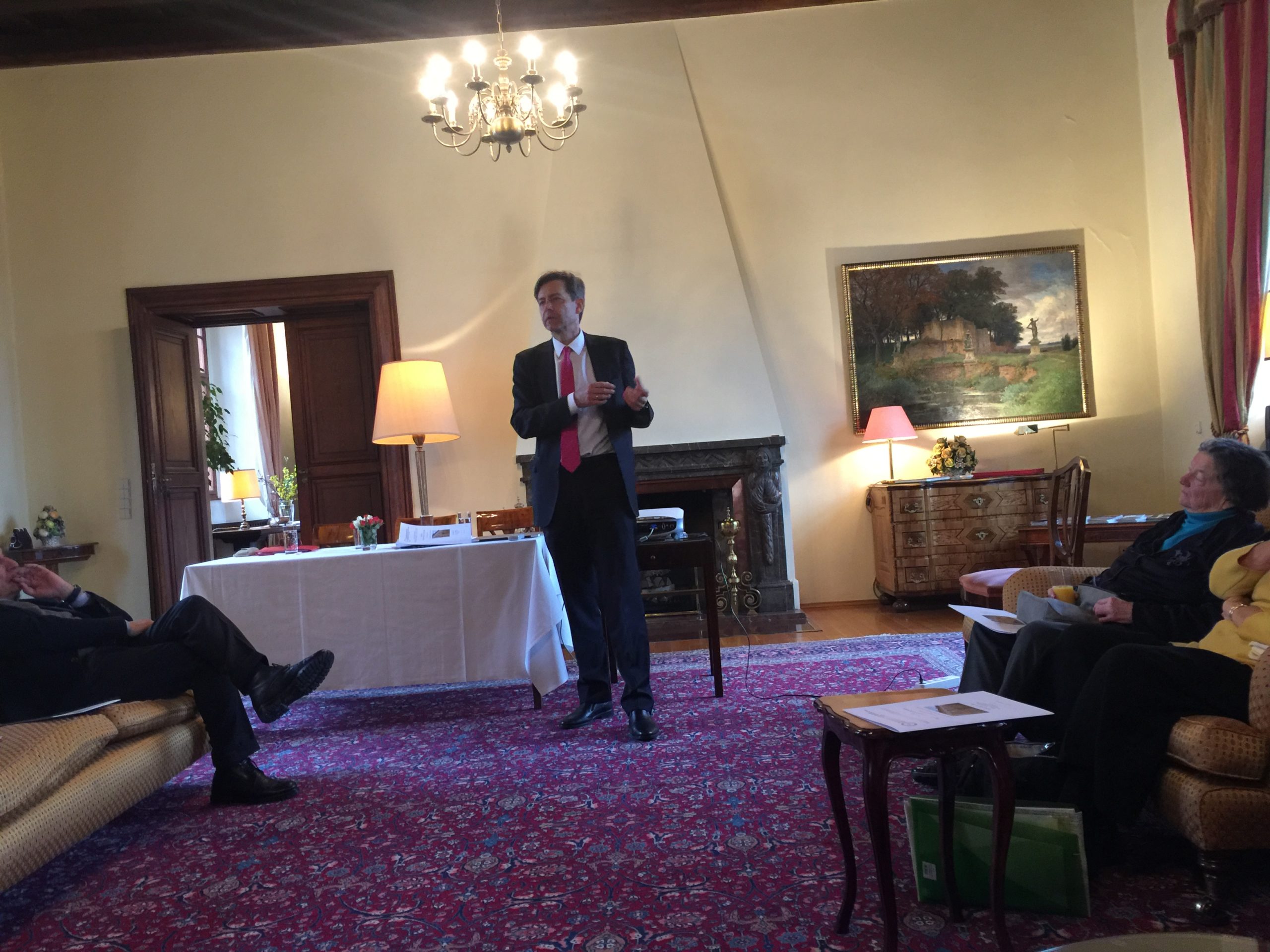
In Praga , EATGA has been hosted in Austrian Embassy
view details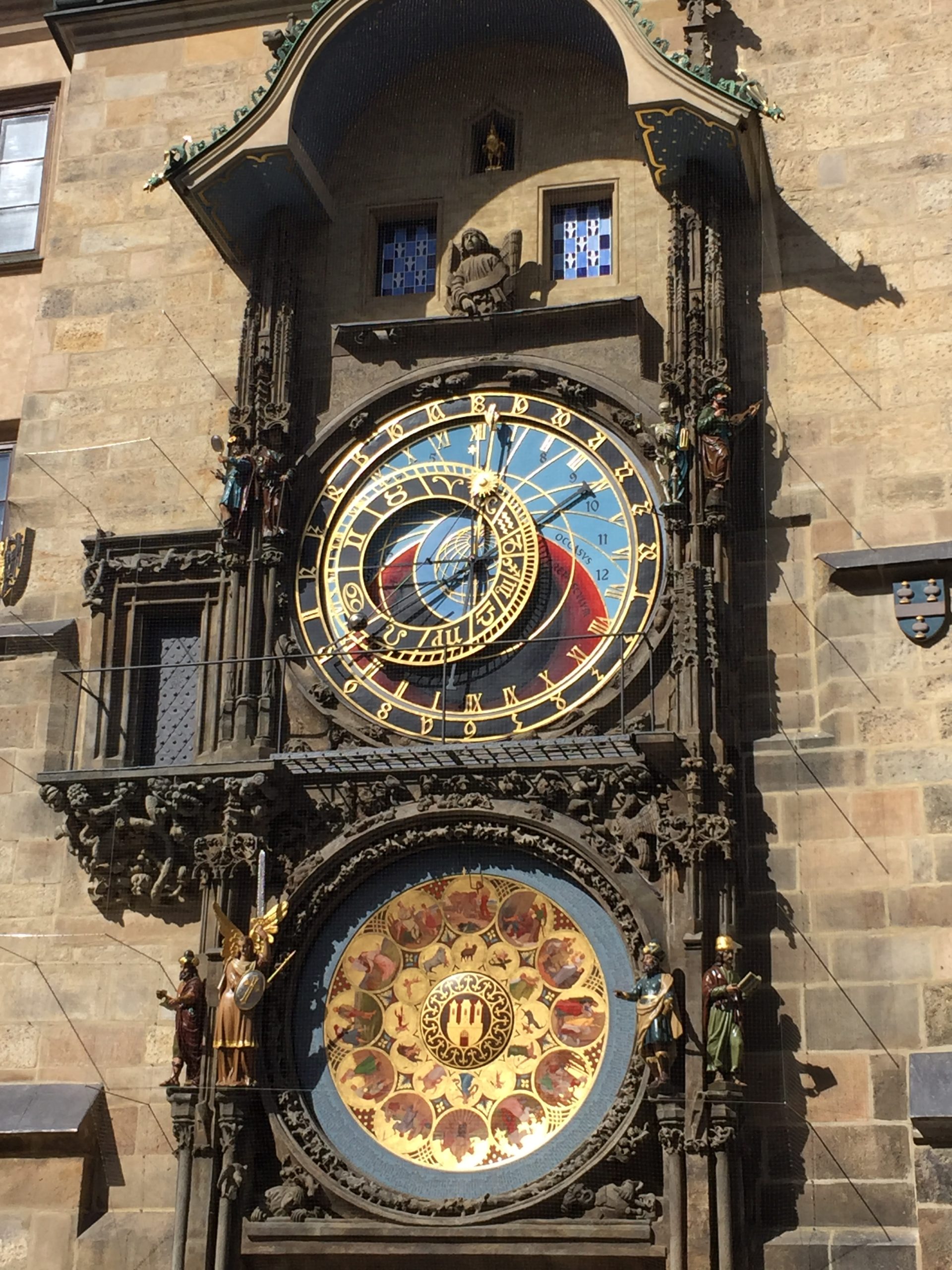
Janine Puget nous a quittés le 5 Novembre dernier à Buenos Aires. Les collègues d’Argentine, des pays latino-américains, d’Italie, d’Espagne et de France qui l’ont connue, sont dans une grande tristesse à l’annonce de la mort de cette grande dame de la psychanalyse. Elle est née à Marseille le 19 décembre 1926. Suite à la mort prématurée de sa mère son père décide de partir en Argentine avec ses deux filles encore petites. Janine après un brillant cursus, fait ses études de médecine. Elle est jeune et trouve un travail de secrétaire auprès de Pichon Rivière. Elle est fort intéressée par son approche psychanalytique originale et commence à suivre son séminaire, puis elle fait une psychanalyse avec Marie Langer, une grande psychanalyste argentine. Elle participe avec José Bleger, Pichon-Riviere et quelques autres à la fondation de l’AAPPG (Association argentine de psychologie et de psychothérapie de groupe). Elle s’implique dans les travaux des départements sur le groupe, la famille, le couple et l’institution. Elle choisit de faire partie de l’APdeBA (Association de psychanalyse de Buenos Aires) plutôt qu’à APA (Association psychanalytique argentine). Elle commence une longue et brillante carrière de psychanalyste qui ne s’achève qu’à sa mort. Elle fait de nombreuses conférences qui ne cessent d’étonner son public, par sa vivacité d’esprit, sa capacité créatrice, sa motivation à se renouveler. Elle passe plusieurs années à former également les collègues d’Uruguay où est créée l’AUPCV (Association psychanalytique uruguayenne de configurations de liens). La théorie du lien qui a un fort impact en Amérique du sud fait l’objet d’un long et régulier travail avec son ami et collègue Isidoro Berenstein qui aboutit à une publication traduite en français intitulé : « La psychanalyse du lien dans les dispositifs psychanalytiques » paru chez Erès en 2008. Une autre publication, sous sa direction, et avec son ami René Kaës est en français, motivée par les effets de la dictature en Argentine, elle est intitulée : La violence d’Etat paru chez Dunod en 1989 . La plupart de ses textes sont publiés en espagnol, souhaitons qu’ils soient traduits, et deviennent disponibles pour permettre au public français de mieux la connaitre. Pour ceux et celles, dont je suis, qui ont eu la chance et le privilège de la connaitre et de l’approcher, il est certain qu’elle nous a apporté beaucoup et nous a transformés. Son écoute, son ouverture d’esprit, sa propension à nous surprendre, sa bienveillante humanité mais aussi sa convivialité et son sens de l’humour ne s’effaceront pas de nos souvenirs. Claudine Vivier Vacheret Novembre 2020.
view details